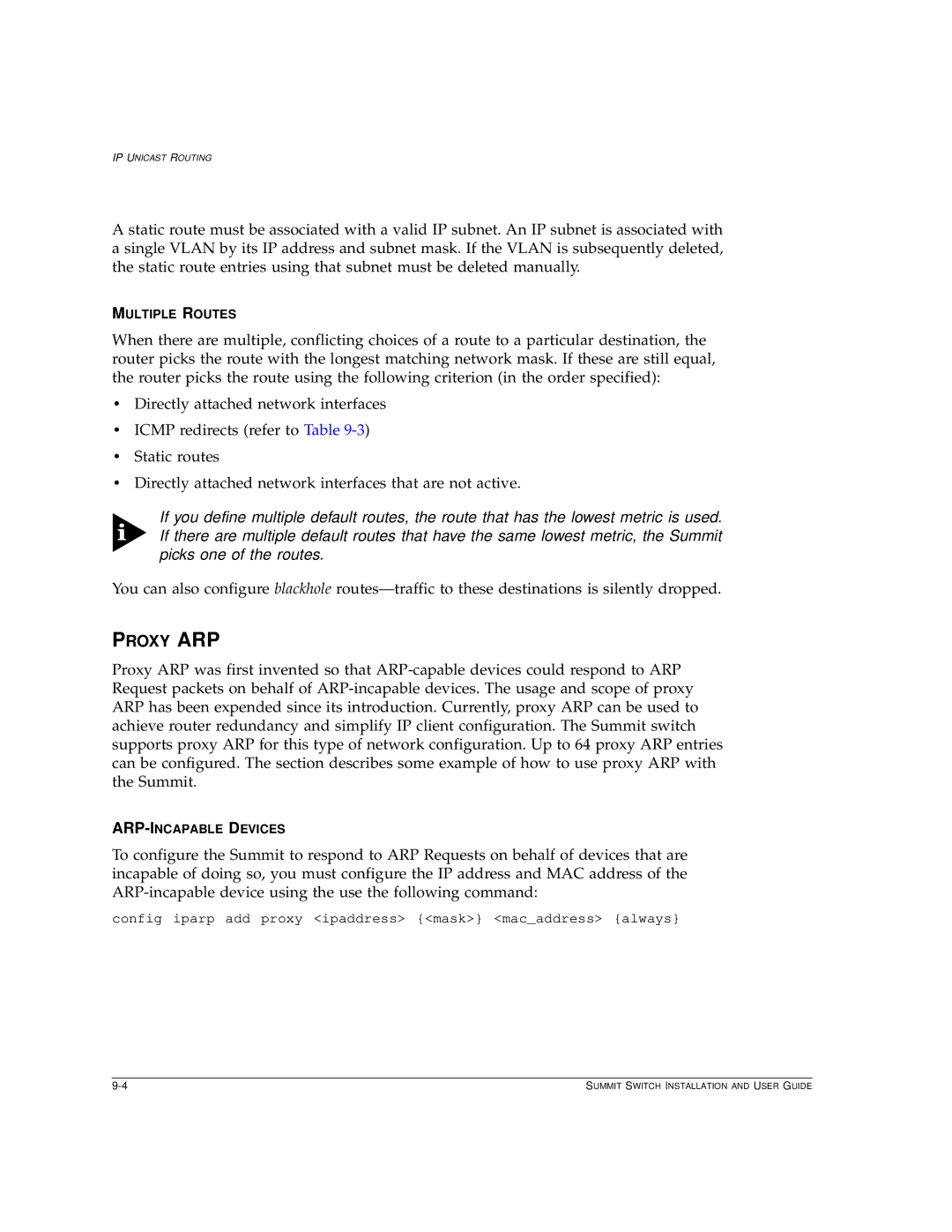
IP UNICAST ROUTING
A static route must be associated with a valid IP subnet. An IP subnet is associated with a single VLAN by its IP address and subnet mask. If the VLAN is subsequently deleted, the static route entries using that subnet must be deleted manually.
MULTIPLE ROUTES
When there are multiple, conflicting choices of a route to a particular destination, the router picks the route with the longest matching network mask. If these are still equal, the router picks the route using the following criterion (in the order specified):
•Directly attached network interfaces
•ICMP redirects (refer to Table
•Static routes
•Directly attached network interfaces that are not active.
If you define multiple default routes, the route that has the lowest metric is used. If there are multiple default routes that have the same lowest metric, the Summit picks one of the routes.
You can also configure blackhole
PROXY ARP
Proxy ARP was first invented so that
To configure the Summit to respond to ARP Requests on behalf of devices that are incapable of doing so, you must configure the IP address and MAC address of the
config iparp add proxy <ipaddress> {<mask>} <mac_address> {always}
SUMMIT SWITCH INSTALLATION AND USER GUIDE |
